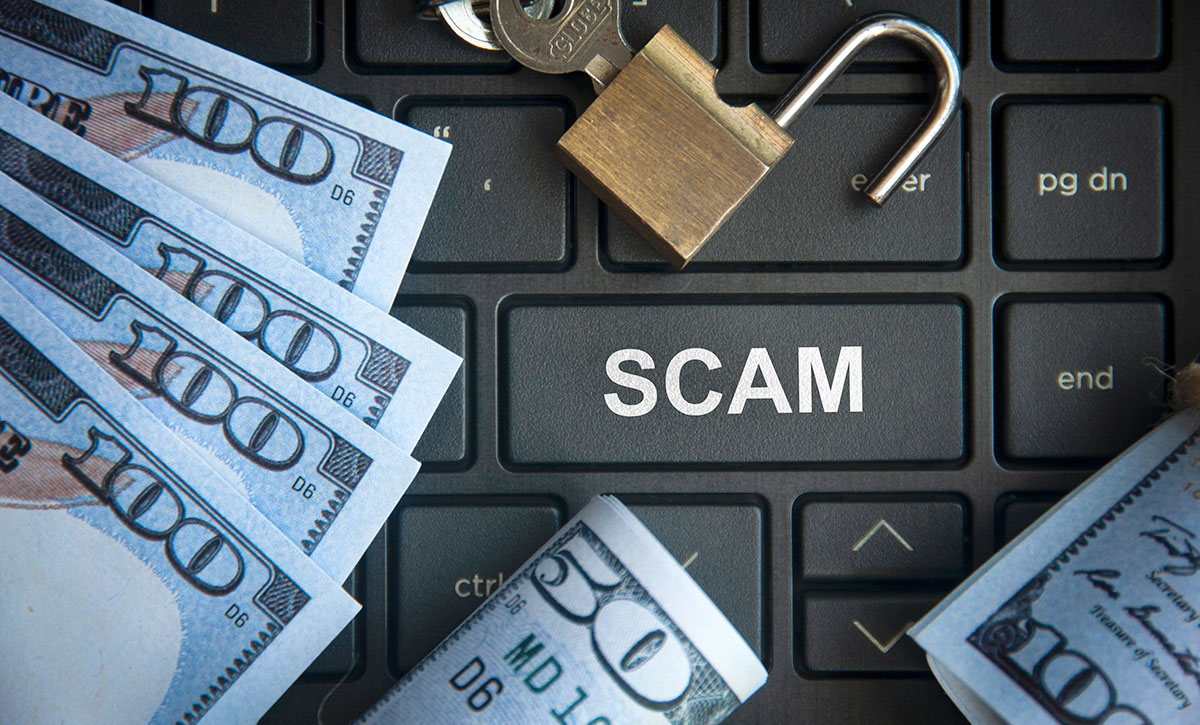
If you’re looking for a new apartment, you know that this journey is filled with both excitement and worry. The housing market can pose a challenge, especially when you consider how much online scams have spread over the years.
In order to understand how to recognize these scams and know what to do if you encounter one, we have put together this guide that can help you in your journey to finding a new rental apartment. These are crucial steps for you to take in order to protect yourself.
This article is divided into two sections to help you navigate these challenges effectively: first, how to recognize these scams, and second, how to protect yourself against scammers.
Recognizing Rental Scams
If you know the signs of a rental scam, it will be much easier for you to recognize them early and avoid any potential danger. This is your first line of defense against fraud. Here’s what to look out for.
1) Too Good to Be True Listings
Some scammers use extremely low prices to attract potential renters, so if you notice an ad that is way below the market, be cautious. Compare the listing with the average prices in the area and be aware of the risks of listings that are significantly cheaper.
These deals usually feature reused images, so you could do a reverse Google image search to check for the original ad or listing in that case.
2) Vague or Overly Eager Responses
If the landlord or agent avoids direct questions or seems too eager to lease, it could be a scam. This may show in a rushed attitude and willingness to skip checks regarding you as a tenant. They might also claim to be abroad, saying they can’t meet with you now; this should always raise suspicions.
Also, scammers often use generic responses that don’t address specific questions. Ask them precise details to check for suspicious behavior.
3) High-Pressure Sales Tactics
Going hand in hand with the previous attitude is this tendency of scammers to often create a false sense of urgency. They could be pressuring you to commit financially before you have time to think things through.
Be cautious; if they keep mentioning that there are other renters interested in the apartment, or if they keep pressuring you, it might be a tactic.
4) Inability to View the Property
Always insist on viewing the property. You can do this either in person or through a virtual tour. Yet, before agreeing to anything, make sure you get a sense of the place and know it is real. If you can’t view it, ask a friend or someone you trust who could go check the place out for you.
Tenants who make up excuses about why the property can’t be shown are very suspicious, and this is a major red flag.
5) Poor Documentation
People who run rental scams usually try to avoid getting complicated, so they might use overly simplified documentation. The lack of a proper lease agreement or one that lacks essential details should be cause for concern.
Also, tenants who don’t ask you for documents on your part are also rather shady. Since you will be living in their apartment, they should be concerned about what type of person you are.
6) Request for Money Upfront
Be cautious if they ask you to send money before signing a lease, especially if they suggest a wire transfer or generally untraceable methods. Never send cash in exchange for the promise of a key. Similarly, make sure you have proper evidence for the legitimacy of the place before being asked to run a credit or background check that could cost you money.

How to Act When You Encounter a Rental Scam
If you suspect that you are dealing with a rental scam, you can take the following steps to protect yourself and others.
- Verify Property Ownership: Check who is the legal owner of the property through county records, which can often be accessed online. This is a way to confirm whether the person you’re dealing with is legitimately connected to the property or not.
- Use Trusted Platforms: Stick to well-known rental websites that have measures in place to vet listings and landlords. These platforms also provide secure communication and payment options, making your experience more convenient and comfortable. Open access sites such as Craigslist or local marketplaces are perfect grounds for scammers.
- Consult Professionals: When in doubt, check with real estate professionals or legal advisors. They can offer advice and even help you verify the legitimacy of the property and the deal. They can talk to you about the local rental market and offer insight into the proper rates and what you should realistically expect to pay.
- Avoid Upfront Payments: As we’ve already mentioned above, never agree to send money before a contract is signed, especially to unknown parties or through untraceable payment methods. Legitimate landlords will arrange for secure payment methods after the lease is signed, to make sure they also have a way of keeping track of the payments.
- Report Scams: If you encounter a scam, don’t be passive about it. Report it to the local authorities and the website where the listing appeared. This can help prevent others from falling victim to the same scam.
Conclusion
Being able to recognize and appropriately react to rental scams is extremely important in the modern housing market. Stay informed about the rental market and be cautious. In this way, you can protect yourself from fraud and rest assured that your house-hunting process is both safe and successful. Remember, if a rental deal seems too good to be true, it probably is. Always trust your instincts and perform due diligence before committing to any rental agreement.